The Role of Diversity in Fostering Employee Engagement
In today’s rapidly changing business environment, organizations progressively recognize the value of a diverse workforce. The relationship between employee engagement and diversity has received considerable attention, and rightfully so. A diverse workforce can have a significant impact on the success of an organization, especially when it comes to nurturing employee engagement. In this blog post, we will examine the impact of diversity on employee engagement, with a focus on India. Here in this blog, we shall examine employment policies, recruitment methods, and best practices that demonstrate how diversity can be a catalyst for increased engagement.

Diversity in Hiring Policies for increased Employee Engagement
A diverse workforce is built on the principles of hiring practises. Numerous businesses in India have begun to include diversity in their employment practises. By establishing inclusive recruiting practises, these rules seek to level the playing field for candidates from varied backgrounds. Let’s look at a few instances of hiring practises that have significantly improved engagement and diversity.
1. Mandatory Interviews with Diverse Candidates: Some forward-thinking Indian businesses have made it a rule to include at least one diverse applicant on every interview panel. The selection process ensures that it takes into account many viewpoints, promoting diversity.
2. Setting Specific Diversity Recruiting Objectives: is another trend that has gained support. For instance, a business may set a goal to increase the number of women or members of underrepresented groups in leadership roles within a given time frame. Employee engagement rises as a result of this company’s dedication to diversity.
3. Biased-Free Job Descriptions: It’s crucial that job descriptions be devoid of any gender or other bias. A more varied pool of candidates can be attracted by using gender-neutral wording and highlighting the company’s commitment to diversity in the job posting.
Recruitment and Hiring Procedures
The influence of diversity first comes into focus during the actual hiring and recruitment processes. Companies are progressively implementing novel selection criteria and hiring practises that favour candidates from underrepresented groups. Here are a few illustrations from the Indian setting:
1. Blind recruitment: In the first screening process, we conceal specific applicant information, such as name, gender, or age, to guarantee that we assess candidates solely based on their qualifications and skills, thereby helping to prevent unconscious biases.
2. Diversity Training for Interviewers: Indian businesses teach their interviewers in diversity and inclusion. By assisting interviewers in identifying and overcoming their prejudices, this training ensures a fair assessment of candidates from all backgrounds.
3. Diverse Interview Panels: Some Indian organizations make sure that the interview panel is varied in addition to conducting diverse candidate interviews. This strategy promotes inclusivity and makes it apparent that the business is committed to diversity.

Diversity in Action: Real-World Examples
Let’s look at a few real-life instances from the Indian corporate world to show how diversity in recruiting and recruitment practises can increase employee engagement.
1. Infosys: Infosys is one of the top IT service providers in India and a pioneer in the hiring of diverse candidates. To find and hire individuals from varied backgrounds, they have formed specialised diversity and inclusion recruitment teams and actively collaborate with schools and institutions. To support different employees’ professional development inside the company, Infosys also offers mentoring and development opportunities. High levels of employee engagement are a result of this diversity-focused approach, since workers feel valued and included.
2. Tata Group: The conglomerate with a footprint across a number of industries, Tata Group, has put in place a disciplined strategy for diversity and inclusion. They have a Diversity and Inclusion Council that manages programmes for retaining and employing people from diverse backgrounds. The group’s subsidiary, Tata Motors, is renowned for its inclusive hiring practices and varied workforce. The company’s reputation as an inclusive workplace has improved because of this dedication to diversity, which has also increased employee engagement.

Best Practices of Recruitment for Diversity and Inclusion
Organizations in India are implementing best practices in recruitment in order to achieve meaningful diversity and promote employee engagement. These procedures go above and beyond simply meeting diversity quotas in order to foster an inclusive workplace.
1. Inclusive Job Advertisements: Businesses are making sure that their job listings show their dedication to inclusion and diversity. To draw in a diverse pool of candidates, they employ inclusive language and imagery.
2. Partnerships for Diverse Recruiting: Recruiting firms, businesses, and universities that are diversity-focused can provide organizations with access to diverse talent pools.
3. Employee Resource Groups (ERGs): Many Indian businesses have created ERGs to give staff members a forum for communication and mutual assistance. ERGs are essential in promoting inclusion and diversity within the organisation.
4. Mentoring and Sponsorship Programmes: Introducing mentoring and sponsorship programmes for different staff members can aid their professional advancement. This not only encourages diversity but also increases participation because workers feel cherished and supported.
Accelerate Your Hiring with IDJF. Click HERE to Register
Conclusion
The role of diversity in fostering employee engagement is gaining prominence in the Indian context as a result of evolving hiring policies, recruitment procedures, and best practises. Companies like Infosys and Tata Group are outstanding examples of how a commitment to diversity can increase employee engagement and contribute to the success of an organisation. By employing inclusive hiring practises, establishing diversity objectives, and providing ongoing support to diverse employees, Indian organisations are not only creating diverse workforces but also reaping the benefits of a more engaged and productive workforce. As the business environment continues to evolve, the role of diversity in fostering employee engagement will continue to be crucial to attaining long-term success.



